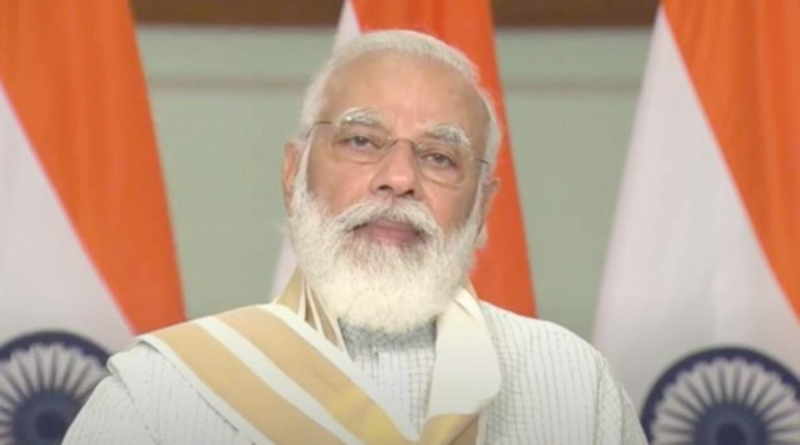By Tavleen Singh
The Prime Minister inadvertently confirmed last week that while his government appears to be afraid of its own shadow, paranoia is coming from it. He gave two speeches in Parliament and in both he opposed the professional protesters and said that the pure protest of the farmers was polluted by the appearance of this type of pest.
In his Rajya Sabha speech, he mocked what he described as a new kind of FDI. He said this acronym now stands for Foreign Destructive Ideology. His paranoia left me perplexed. I started my career in Indian journalism when Indira Gandhi was Prime Minister. And can confirm that even in an emergency, when she suspended democracy and fundamental rights, she was not as powerful as Narendra Modi is today.
She became deeply unpopular and, despite her imprisonment, more than 100,000 people continued to face protests from political parties who continued their work by going underground. Most newspapers accepted censorship with shameful servility. But those who didn’t, like this one, continued to challenge her during the censorship period.
When her son, Sanjay, began his campaigns to compulsorily sterilize men and make poverty eradicate by throwing Delhi’s slum dwellers out of the city limits, ordinary people began to protest publicly. In the villages of Haryana, the women started beating the officials who came to sterilize their men. When the elections were held in 1977, Mrs Gandhi and her son failed to win their own seats. Today the situation could not be more different.
A recent poll in India Today indicates the prime minister is as popular as he has ever been and would win a full majority for his party if an election were held. Most of those interviewed said they were perfectly happy with the way he handled the pandemic and the economy. He faces no threats from the opposition, either in parliament or in the streets, and the media are more docile than ever with our most powerful TV channels and Hindi newspapers openly on their side. What is he afraid of?
Why are we seeing this attack on social media platforms and digital news portals? Last week, a small digital platform called News Click was attacked by the Law Enforcement Branch, making it more famous than it was before. And Twitter has been publicly berated for failing to remove all accounts the Indian government ordered it to be.
There has been a huge jump over the past year in complaints filed by the Indian government against Twitter, and the Minister of Justice has issued a stern warning. Don’t spread hate, violence, fake news… follow the Constitution and Indian laws, we will be very strict about it. Attacks on people known as Urban Naxals began much earlier. They’ve been rotting in jails for years, and now we learn from an American digital forensics company that the evidence that sent Rona Wilson to jail was malware implanted in her computer just before her arrest.
Some of these urban Naxals are 80 years old and have been jailed for months on charges that seem vague and questionable. The good news that arrived last week is that comedian Munawar Faruqui has been released on bail after Supreme Court intervention. But, he spent six weeks in prison for jokes he had not yet cracked. He was arrested at the behest of the son of a BJP leader, and his story has given the Modi government very bad international publicity.
When the Prime Minister himself is paranoid, it stands to reason that his ministers and supporters will go further to launch their own campaigns to find anti-nationals and urban Naxals. This has been going on for quite some time. It started with the attacks on JNU students and then on Muslims who protested against changes to the citizenship law. But outrage is selective.
In Delhi elections last year, one of the Modis ministers called a public rally by chanting with him that traitors to India should be shot. He has so far not been charged with inciting violence or spreading hatred. When a government shows signs of paranoia, it has dangerous consequences. We are starting to see this happening.
Political activists are being thrown in jail these days under strict pre-trial detention laws and we recently saw journalists and an MP charged with sedition. What is going on? Does the Prime Minister really believe that the only way to rule India is to crush all dissent under the yoke?
Doesn’t he see that if Twitter is to be reprimanded for allowing offensive tweets, the first accounts he should shut down are those belonging to people proud to be followed by him. He only needs to check some of the tweets the BJP troll army posts against Muslims to know that they are masters of the spread of hatred, violence and fake news.
Why should the most powerful Prime Minister in Indian parliamentary history behave as if he is under existential threat from dark enemies? Why should dissent be treated as sedition? Why should protesters be categorized and labeled? It would have been better if the Prime Minister had not made it clear himself that he approved of this kind of crackdown.


